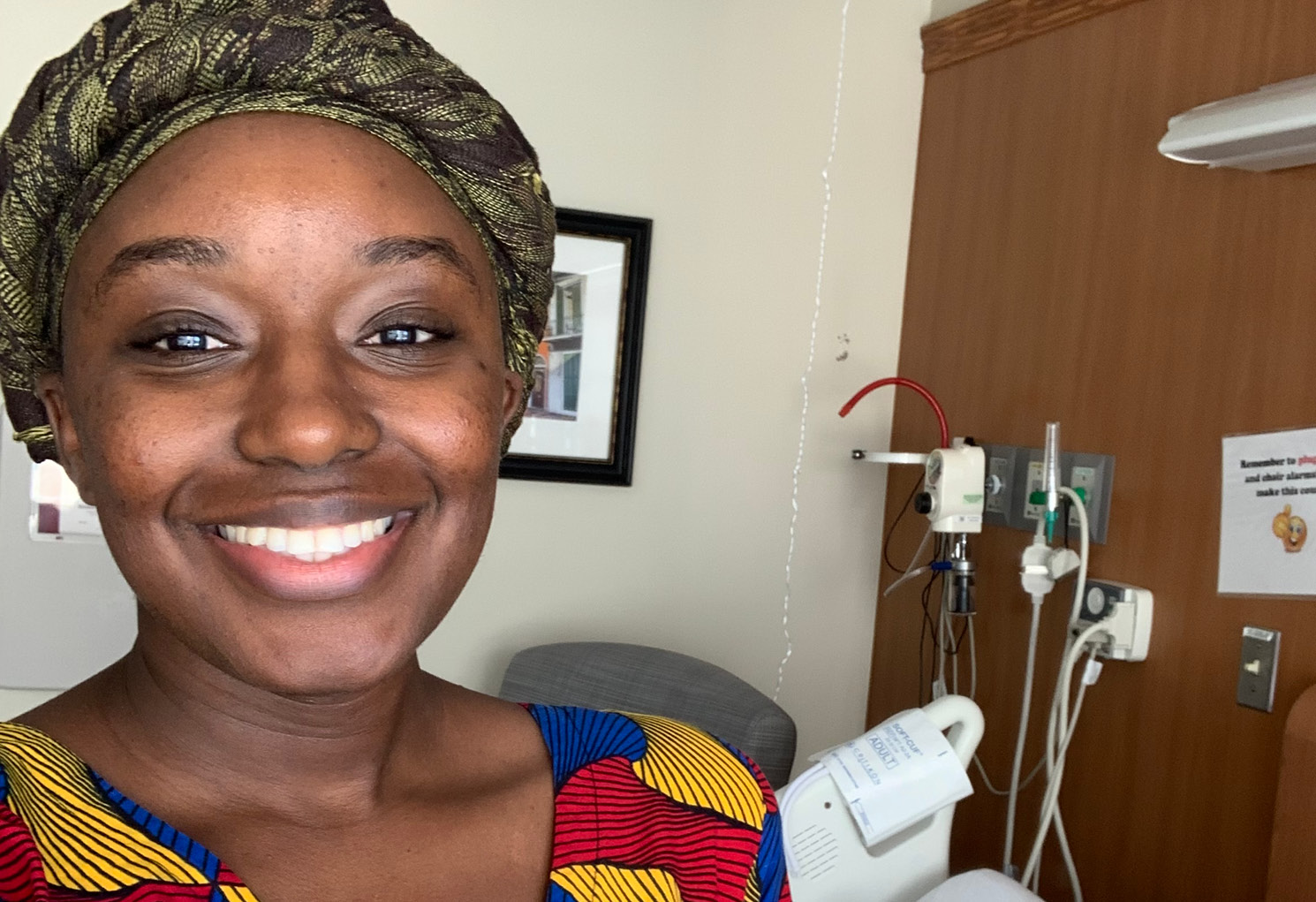
Doreen Ndishabandi, on the day of her discharge from the hospital.
Doreen Ndishabandi, a dual American and Ugandan citizen, has lived in Uganda, Belize, Rwanda, and Tanzania but was very grateful to be visiting family in the United States when her brain aneurysm ruptured last year. Knowing she is lucky to be alive, Doreen set up a fundraiser for the Brain Aneurysm Foundation’s 2nd Annual Day of Engagement and raised $15K to establish a Chair of Research in her name, which will be awarded at our annual Research Grant Symposium on September 12, 2024, in Boston, MA.
DN: On July 6, 2023, I suffered a ruptured brain aneurysm while at the gym, despite being in my early 30s, living a healthy and active lifestyle, and having no family or medical history indicating aneurysm risk. Two months prior, I’d complained of severe headaches and had been told by a neurologist that I had migraines. Trusting this diagnosis, I never once imagined that it could be a symptom of something more severe.

I was lucky to have been in the right place at the right time. My sister, an ICU nurse, rushed me to the emergency room. I was thereafter transferred to a specialized neuro-critical care hospital, where I underwent endovascular surgery to treat the aneurysm. The gravity of my experience is not lost on me; over 40% of those with a ruptured aneurysm do not survive the initial event. Many others are misdiagnosed or suffer long-term deficits as they recover from complex surgeries and treatments. I consider myself extremely fortunate. Though the initial recovery was challenging, I have since made a full recovery and returned to my normal life.
DN: A month after being discharged from the ICU, I decided to raise money to support brain aneurysm awareness and research. This led me to the Brain Aneurysm Foundation (BAF), an organization dedicated to supporting survivors, caregivers, and medical research. I was particularly moved by data that showed a higher prevalence of brain aneurysms in black populations, coupled with their underrepresentation in medical research and limited access to quality and timely diagnostics and treatment. I was often told by sympathizers, “You’re so lucky you happened to be in the U.S at the time of your rupture. This would have otherwise been a death sentence. You’d have definitely not made it.”

I felt compelled to take action. I partnered with William Smith, a seasoned long-distance swimmer, to run a fundraising campaign that would raise awareness about brain aneurysms, hemorrhagic strokes, and arteriovenous malformations (AVMs). Our campaign would also allow us to fund research that is inclusive of black populations. In September of 2023, William swam 33km across the English Channel from England to France. Over the course of three months, we raised $15,000 from friends, family, and many generous donors.

DN: Unfortunately, brain aneurysms happen more often than many of us imagine. A brain aneurysm ruptures every 18 minutes. This risk is typically underestimated, particularly among the young and healthy and I hope that I can encourage more young people to prioritize medical checks if they are at risk or show symptoms.
Additionally, I think it is important for us to advocate for more inclusive research and treatment especially for populations or regions of the world where access to advanced treatment of ruptured brain aneurysms is not available or affordable.
To make a donation to support the BAF’s research efforts, CLICK HERE
Our site uses cookies to personalize features and, via third-parties, to collect metrics on usage so that we can better tailor our site to the needs of our users. You can view our full cookie and privacy policies via the links below. To fully experience our site, please click Accept.